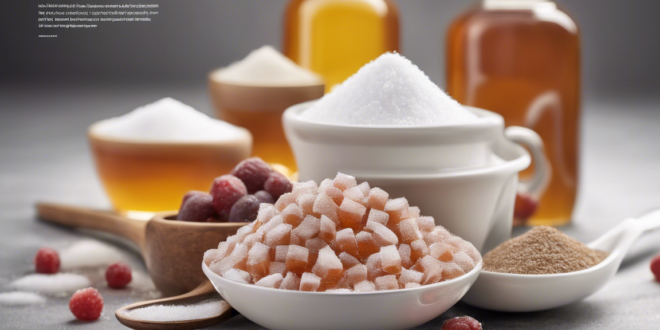Smart Sugar Substitutes for Everyday Use: Boosting Immunity Naturally
In today’s health-conscious world, finding alternatives to refined sugar that not only satisfy your sweet tooth but also support your immune system has become a critical nutritional strategy. This comprehensive guide explores innovative sugar substitutes that can transform your diet and enhance your overall wellness.
Understanding the Impact of Sugar on Immune Function
Excessive sugar consumption has long been linked to compromised immune responses. When we consume refined sugars, our body experiences a temporary suppression of white blood cell activity, making us more vulnerable to infections and inflammatory conditions. By strategically replacing traditional sugar with smarter alternatives, we can maintain sweetness while supporting our body’s natural defense mechanisms.
Natural Sugar Alternatives with Immune-Boosting Properties
1. Raw Honey: Nature’s Liquid Gold
Raw, unprocessed honey isn’t just a sweetener—it’s a powerful immune-enhancing superfood. Packed with antioxidants, enzymes, and antimicrobial compounds, raw honey provides multiple health benefits. Unlike processed sugars, it contains natural antibacterial properties that can help fight infections and support overall immune function.
Key benefits include:
• Supports wound healing
• Provides natural antimicrobial protection
• Contains beneficial enzymes and trace minerals
• Lower glycemic index compared to refined sugar
2. Stevia: A Zero-Calorie Immune Ally
Derived from the Stevia rebaudiana plant, this natural sweetener offers remarkable advantages for health-conscious individuals. Unlike artificial sweeteners, stevia is plant-based and contains zero calories. Research suggests it may help regulate blood sugar levels, reducing inflammation and supporting immune system efficiency.
Stevia’s potential advantages:
• Zero calories
• Natural plant-based origin
• Supports blood sugar regulation
• No artificial chemical components
3. Maple Syrup: More Than Just a Pancake Topping
Pure maple syrup is a nutrient-dense sweetener containing zinc, manganese, and antioxidants that directly contribute to immune system strength. Unlike refined sugar, maple syrup provides minerals that support cellular health and protect against oxidative stress.
Nutritional highlights:
• Rich in essential minerals
• Contains powerful antioxidants
• Supports metabolic function
• Lower glycemic impact compared to white sugar
Practical Implementation Strategies
Transitioning to healthier sugar substitutes doesn’t mean sacrificing flavor. Start by gradually incorporating these alternatives into your daily diet. Replace processed sugars in baking, beverages, and cooking with these immune-supportive options.
Cooking and Baking Tips
1. When baking, substitute honey or maple syrup for white sugar in a 1:1 ratio
2. Reduce liquid content slightly to maintain proper recipe consistency
3. Lower cooking temperatures to prevent burning
4. Experiment with stevia in beverages and cold preparations
Potential Considerations and Precautions
While these natural sweeteners offer significant advantages, moderation remains key. Individuals with specific health conditions, such as diabetes, should consult healthcare professionals before making substantial dietary changes.
Long-Term Health Impact
By consciously choosing smart sugar substitutes, you’re not just improving taste—you’re actively investing in your immune system’s resilience. These natural alternatives provide a holistic approach to nutrition, supporting metabolic health, reducing inflammation, and enhancing overall well-being.
Conclusion: A Sweet Path to Wellness
Embracing sugar substitutes is more than a dietary choice—it’s a commitment to proactive health management. By understanding and implementing these natural alternatives, you can enjoy sweetness without compromising your immune system’s integrity.
Remember, small, consistent changes create significant long-term health benefits. Start your journey toward smarter, healthier sweetening today.
 Good Calories Guide GoodCalories Guide focuses on nutrition, healthy eating, and overall wellness. The site offers practical insights into evidence-based dietary practices, including tips for specific lifestyles such as veganism, keto, and family-friendly meal planning. It also addresses unique nutritional needs for individuals with conditions like diabetes or food allergies, while providing quick and accessible recipes to make healthy living a sustainable and enjoyable choice.
Good Calories Guide GoodCalories Guide focuses on nutrition, healthy eating, and overall wellness. The site offers practical insights into evidence-based dietary practices, including tips for specific lifestyles such as veganism, keto, and family-friendly meal planning. It also addresses unique nutritional needs for individuals with conditions like diabetes or food allergies, while providing quick and accessible recipes to make healthy living a sustainable and enjoyable choice.


